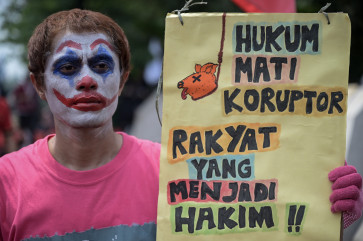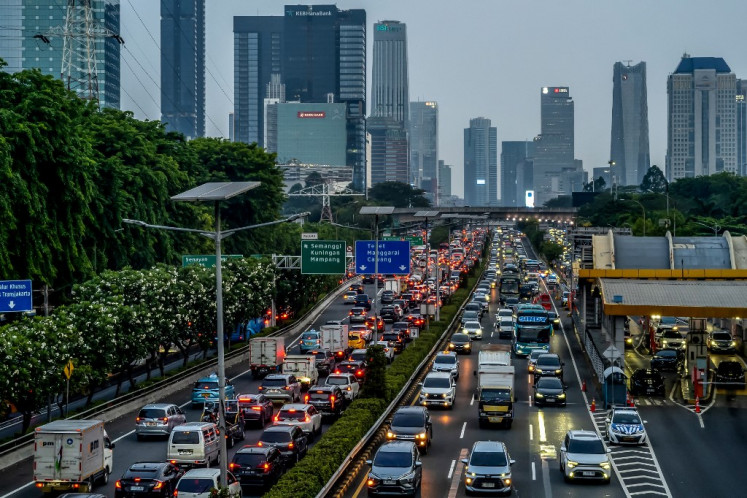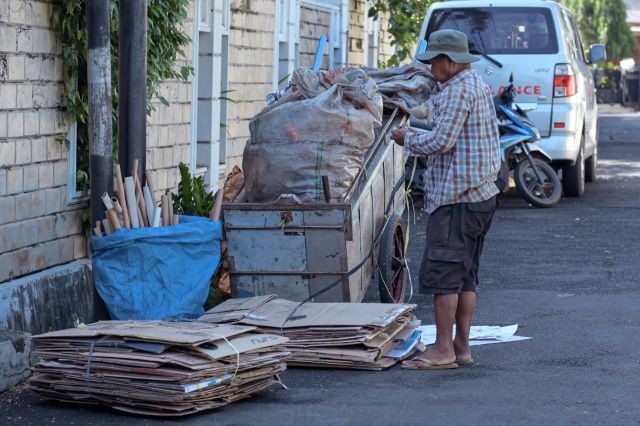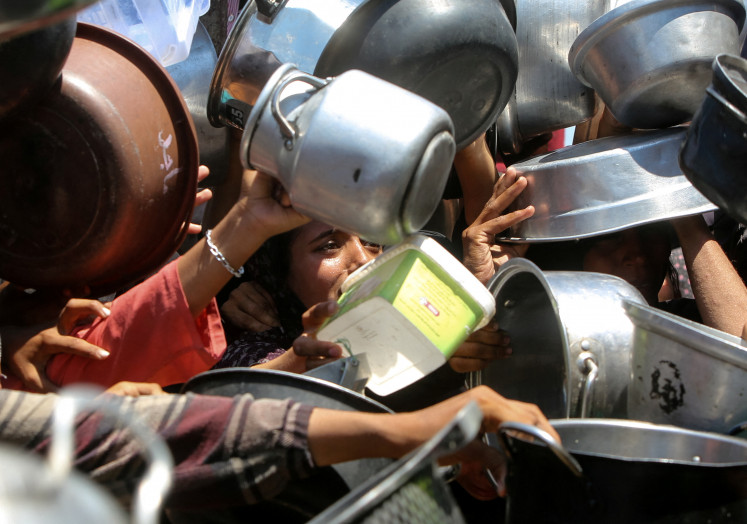Popular Reads
Top Results
Can't find what you're looking for?
View all search resultsPopular Reads
Top Results
Can't find what you're looking for?
View all search resultsPrevention of corruption better than eradication
As part of preventive measures in the fight against corruption, the Corruption Eradication Commission (KPK) is organizing the three-day KPK Integrity Fair 2011 at Losari Beach in Makassar, South Sulawesi
Change text size
Gift Premium Articles
to Anyone
A
s part of preventive measures in the fight against corruption, the Corruption Eradication Commission (KPK) is organizing the three-day KPK Integrity Fair 2011 at Losari Beach in Makassar, South Sulawesi.
With “Realizing an integrated Makassar toward a dignified Indonesia” as its theme, the fair is designed as a forum to introduce Makassar municipal administration’s best practices in the field of public services.
The event, the last to be held by the KPK this year after ones previously held in Bandung (West Java), Palembang (South Sumatra) and Surabaya (East Java), is also meant as a medium to help create understanding among people, including students, about the dangers of corruption and the importance of an anti-corruption culture and integrity.
“The community so far knows the KPK only as an institution that cracks down on corrupt practices. In fact, the KPK also plays a role in the prevention of corruption. Preventing corruption is far better than eradicating it,” KPK deputy chairman Chandra M. Hamzah said as he officially opened the fair on Friday.
Chandra said Indonesia had made many achievements in the fight against corruption. Internationally, however, the country’s corruption eradication index is rated at only 2.8 on a scale of 10.
“This means that we still have to work hard to fix it. One way of doing so is by preventing corrupt practices from being committed,” Chandra said.
Separately in Yogyakarta, political observer Nur Rachmat Yuliantoro of Gadjah Mada University’s School of Social and Political Sciences said that hard work involving all elements of the nation were indeed needed to really stop corruption in the country.
“A clear and strong political will from the government to fight corruption is also urgent in corruption eradication efforts,” he told the media on Friday.
Nur said that the democratization process in this reform era could not yet put a stop to rampant corruption, particularly political corruption, which had been developing like cancer cells.
“The reform democracy is unable to stop or at least reduce the abuse of authority on the part of dishonest politicians, which leads to political corruption,” he said Friday.
He added that unless something was done, the country’s political system would fester and be destroyed by corruption cancers.
Political corruption, according to Nur Rachmat, has become a matter of business as usual at both regional administration and national government levels, with the two main purposes being amassing fortune and preserving authority.
As a result, political corruption has been an effective instrument for political party elites and public officials to satisfy their interests.
“It grows into massive cases that cannot be easily eradicated or that need a long process to deal with,” Nur said.










